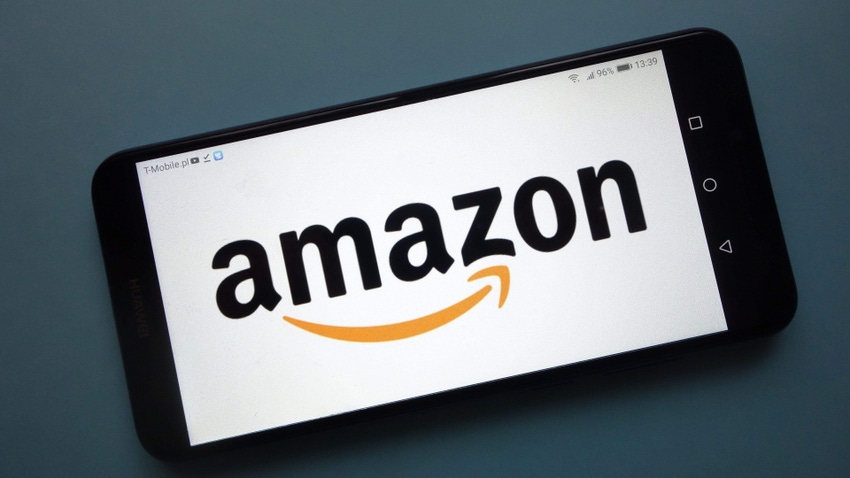AT&T, T-Mobile and Verizon have already denied they are in mobile discussions with Amazon, but analysts have weighed in to explain why such a deal doesn't add up for all sides.

Industry analysts have poured a few more buckets of cold water on a report last week that Amazon is in talks with multiple wireless operators about developing a cheap – and potentially free – mobile service that could be sold to its millions of Prime subscribers.
Analysts believe that such a deal, if executed, would be bad for the mobile network operators (MNOs) and Amazon. It likely would be a big money loser for Amazon and could expose the company to unnecessary regulatory risk, they said.
Even before the naysayers chimed in, AT&T, T-Mobile and Verizon all denied that they are in talks with Amazon to resell wireless services. Those statements came after their stocks were getting drilled the day the news broke. On Friday (June 2), AT&T dropped 3.8%, Verizon fell 3.19%, and T-Mobile dropped 5.56%.
Amazon also told Bloomberg in the original story that it's always exploring new benefits for Prime members but doesn't have plans to add wireless to Prime for now. Dish Network, which saw its stock bounce from the report, has not commented.
Skeptics abound
Analysts wondered if there's any fire beneath the smoke, or if it might make any sense for such an agreement to be forged further down the road.
"Don't bet on it," Craig Moffett, analyst with MoffettNathanson (a unit of SVB Securities), explained in a research note (registration required) issued late last week. "To be sure, it is perfectly reasonable to imagine that Amazon would undertake the due diligence of 'testing the waters.' But we have a very hard time seeing this going beyond that."
Peter Supino, analyst with Wolfe Research, said in a note issued today: "We spoke to everyone except DISH and we doubt the story. We were unsurprised by Friday's denials by AT&T, T-Mobile, Verizon and Amazon."
More than the price of a Prime membership
While Moffett believes Amazon might be able to pull off an MVNO deal if it really wanted to, he argued that the annual wholesale cost of providing wireless service for even a single line, without the benefit of any cost-saving data offloading, would be more than the annual price of a Prime subscription.
"At something like $240 per year just for the traffic – before anything to do with customer acquisition, customer service, etc. – the wholesale costs alone would likely be greater than the price of a $139 per year Prime membership," Moffett explained. "While Amazon could certainly afford to offer wireless service free with Prime if they wanted to, it would be a huge money loser if they were to give it away for free."
He also wouldn't expect to see a "Prime Wireless" product provide much help to Amazon's retail business outside of reducing churn.
Meanwhile, Amazon, he argued, could expose itself to "huge regulatory risk" by getting in to the mobile market, in part because customer information is more tightly regulated in the telecom world than in some adjacent industries.
"Not only would these rules badly constrain what Amazon would be able to do with that information – if indeed they were able to capture it in an MVNO arrangement, which isn't clear – but they would be risking regulatory 'infection' by having a retail Telecom business at all. Even a minimal risk like this would be a deal-breaker, in our view," Moffett wrote.
What's in it for the Big Three?
Moffett also doesn't see why the Big Three MNOs would be interested.
"Letting the fox into the hen house would be an awful idea," he said. On that, he points to Verizon's "ill-advised" deal in 2011 that enabled Comcast, Verizon and (later) Cox Communications to obtain valuable MVNO rights in exchange for the purchase of their respective Advanced Wireless Services (AWS) spectrum.
"Surely neither they, nor AT&T, would be so unwise as to make the same mistake again," Moffett added.
Dish might be interested in working with Amazon, but analysts don't see that happening.
"While Dish would obviously love to be a provider here, there is virtually no chance, in our view, that Amazon would allow itself to play guinea pig on a start-up Dish wireless network," Moffett wrote. "Without the ability to resell AT&T or TMUS [T-Mobile] service, Dish simply isn't a credible partner. Not only is their coverage insufficient to be a viable offering, but they've never operated a wireless network before, let alone a large-scale MVNO."
Meanwhile, Supino pointed to Dish's non-exclusive distributorship agreement with AT&T. While Dish may use dealers and distributors to market, sell and solicit orders, the company may not resell any services such as roaming as part of any offer or arrangement with a third party that enables the equivalent of wholesale wireless relationships, the analyst added.
Related posts:
— Jeff Baumgartner, Senior Editor, Light Reading
Like what we have to say? Click here to sign up to our daily newsletter
One of America's most loved telecoms get-togethers, The BIG 5G Event, will be returning to Austin in 2023 to host 1,500+ telecom, cloud and technology professionals — and we want you to be a part of it!
For three days, you can meet and network with leaders from every part of the North American 5G ecosystem and hear from over 150 speakers on the hottest industry topics. To apply for your complimentary pass to the event, visit this link.
About the Author(s)
You May Also Like











